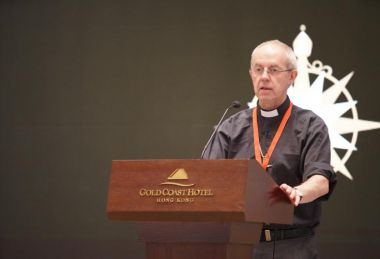
BY : Susie Leafe Christian Today
Last week Lambeth Palace confirmed that the Archbishop of Canterbury, the Most Justin Welby, along with the Archbishop of York and “many other bishops” of the Church of England no longer believe the Church of England’s teaching with regards to sexual intimacy.
In an interview with Alastair Campbell for the Rest is Politics Podcast, Justin Welby revealed that where he and the other bishops “have come to is to say that all sexual activity should be within a committed relationship, whether it’s straight or gay. We’re not giving up on the idea that sex is within marriage or civil partnership. We’ve put forward a proposal that where people have been through a civil partnership or a same-sex marriage under the 2014 Act, they should be able to come to a church for a service of prayer and blessing.”
A subsequent statement from Lambeth Palace confirmed that, “his thinking has evolved over the years through much prayer and theological reflection – particularly through the Living in Love and Faith process – and he now holds this view sincerely. It reflects his commitment to continuing to welcome, love and include LGBTQ+ people more fully in the life of the Church.”
Despite a few headlines to the contrary, the real news is that this statement has not, in the main, caused an uproar or calls for his resignation.
This may be due to the superb media management by Lambeth Palace – the Archbishop released a ‘personal statement’ the day before announcing the ‘recent’ discovery that his great-great-great grandfather was “an owner of enslaved people.” This filled up the secular papers’ religious column inches, leaving little space to comment on the later story.
The Lambeth Palace Statement also coincided with a meeting of the House of Bishops – making it hard for the orthodox bishops to protest publicly and for the Alliance, the informal network of orthodox Anglicans in the Church of England, to coordinate a response.
Or it may be just that it didn’t come as a surprise.
The language used by Lambeth Palace came straight out of Justin Welby’s speech to the bishops at the Lambeth Conference in 2022, where he described those who had moved away from traditional teaching in these terms:
“They have not arrived lightly at their ideas that traditional teaching needs to change. They are not careless about scripture. They do not reject Christ. But they have come to a different view on sexuality after long prayer, deep study and reflection on understandings of human nature.”
And his interview with Alastair Cambell echoed his dismissive attitude at Lambeth to those who upheld traditional teaching. At Lambeth he said, “For the large majority of the Anglican Communion the traditional understanding of marriage is something that is understood, accepted and without question, not only by Bishops but their entire Church, and the societies in which they live.”
In the interview with Alastair Campbell, he repeated his completely unfounded suggestion that those who held to this teaching, not only did so unquestioningly, but also “want the death penalty for people who are gay.”
It is hardly surprising then, when he announces publicly that he is one of the spiritual, thoughtful, prayerful people, rather than the unquestioning, ignorant people who apparently wish to live in a society where gay people should be killed.
The orthodox who remain face a difficult balancing act.
The Alliance’s last letter set out both their strengths and their weakness. They represent “2360 clergy whose churches currently represent 42% of the Church of England’s average Sunday attendance and 53% of all under eighteen-year-olds within the Church of England,” but they also acknowledge that while they may be able to form a de facto province in the Church of England – without transferred episcopal oversight they cannot offer any form of episcopal ministry within that province. So, they are still dependent on the House of Bishops to offer them proper pastoral provision.
And that may also be a reason for not calling for the Archbishop of Canterbury’s resignation. Welby, with all his faults, has said over and over again that he wants to keep the orthodox in the Church of England. His successor may have other ideas.
The majority of the Anglican Communion have, however, had enough. They rejected the Archbishop of Canterbury’s leadership and authority months ago. As the GSFA said in July:
“The Church of England, has set itself to cement its departure from the historic faith by liturgical change. There can therefore now be no doubt that the Mother Church of the Communion has forfeited her leadership role in the global Communion and that the legacy ‘instruments of unity’, the Archbishop of Canterbury and the other instruments over which he presides, (the Primates Meeting, the Lambeth Conference and the Anglican Consultative Council) are all compromised.”
Many in the United Kingdom have done the same, leaving the Canterbury-aligned structures and planting new churches. Nearly a hundred churches have already gathered together in the rapidly growing, Gafcon-authorised Anglican Network in Europe.
Or it might just be that, having degraded the authority of his office and rejected the authority of God’s word, no one is actually interested in his personal opinion.
Photo: Lambeth Palace

















